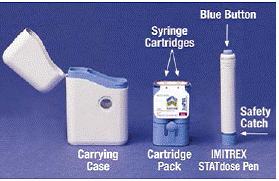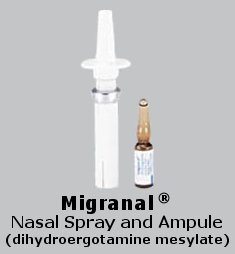Side Effects of Acute Migraine Treatment Drugs
Acute treatment Migraine drugs means the medication taken at the onset of a Migraine with the idea to decrease or eliminate the pain of a Migraine. In general, these drugs are over the counter medications (OTC) like Tylenol or Advil, or prescription type drugs written by a doctor.
This is an article by Britt Talley Daniel MD, member of the American Academy of Neurology, Migraine textbook author, Podcaster, YouTube video producer, and Blogger.
Side effects of acute Migraine treatment drugs. All drugs have possible side effects, and we all have to live with this fact. Some persons are more sensitive to medications than others. Hopefully, the Migraine acute treatment drug used will be better than the suffering of a Migraine, or to restate this: That the treatment will not be worse than the disease.
A list of acute Migraine treatment drugs follows:
Read my mini Book on Migraine Here.
Associated questions.
What are the side effects of over-the-counter drugs?
All these drugs can cause frequent daily headaches or chronic migraine due to medication over use headache. The International Classification of Headache Disorders version 3 states that simple analgesics like caffeine, Tylenol, or Advil taken as 1 pill 15 or more days a month may cause medication overuse headache.
Most of the over-the-counter group of drugs can aggravate GERD, gastroesophageal reflux disorder. This is commonly called “heartburn” and treated with Tums or other antacids.
Specific side effects of the various drugs are:
Tylenol (acetaminophen) is listed as a centrally-acting non-opioid analgesic. Opioid drugs are narcotic analgesics such as morphine or hydrocodone which should never be used for headache because of addictive and headache causing qualities such drugs possess. Other side effects of Tylenol are:
Hypersensitivity reaction
Anaphylaxis
Skin reaction, severe
Hepatoxicity
Nephropathy, from chronic use
Anemia
Thrombocytopenia
Common reactions-nausea, rash, headache.
Advil (ibuprofen) is an NSAID (nonsteroidal anti-inflammatory drug).
NSAIDs may cause an increased risk of serious cardiovascular thrombotic events, including myocardial infarction and stroke, which can be fatal. This risk may be increased in patients with cardiovascular disease or risk factors for cardiovascular disease. Naproxen is contraindicated in the setting of CABG surgery. NSAIDs can also cause an increased risk of serious gastrointestinal (GI) adverse events, including bleeding, ulceration, and perforation of the stomach or intestines, which can be fatal. Elderly patients and patients with a history of peptic ulcer disease and/or GI bleeding are at greater risk for serious GI events.
Side effects:
abdominal pain
acid or sour stomach
belching
bloating
cloudy urine
decrease in amount of urine.
decrease in urine output or decrease in urine-concentrating ability.
diarrhea
difficulty having a bowel movement (stool)
excess air or gas in stomach or intestines
full feeling
heartburn
indigestion
itching skin
pain or discomfort in chest, upper stomach, or throat
pale skin
passing gas
nausea
noisy, rattling breathing
rash with flat lesions or small raised lesions on the skin
shortness of breath
swelling of face, fingers, hands, feet, lower legs, or ankles
troubled breathing at rest
troubled breathing with exertion
unusual bleeding or bruising
unusual tiredness or weakness
vomiting
weight gain
Less common
Abdominal cramps
stomach soreness or discomfort
Caffeine is a common component of pain killers and of course is in coffee, tea, and chocolate.
Caffeine is found in Excedrin, Anacin, NoDoz, Vivarin, and Fioricet.
Side effects:
Feeding intolerance
Less common
Agitation
black, tarry stools
blood in the stools or urine
bruising
burning feeling or tenderness in the stomach
chills
coma
confusion
coughing or vomiting blood
decreased urine output.
depression
dizziness
fainting
fast heartbeat
fever
headache
hostility
indigestion
irritability
lethargy
lightheadedness
muscle twitching
nausea
persistent bleeding
rapid, shallow breathing
rapid weight gain
rash
seizures
severe stomach pain
stomach upset.
stupor
swelling of the face, ankles, or hands
trouble breathing
unusual tiredness or weakness
vomiting
vomiting of blood or material that looks like coffee grounds.
Coffee
Aleve (naproxen) is an NSAID type pain killer.
NSAIDs may cause an increased risk of serious cardiovascular thrombotic events, including myocardial infarction and stroke, which can be fatal. This risk may be increased in patients with cardiovascular disease or risk factors for cardiovascular disease. Naproxen is contraindicated in the setting of CABG surgery. NSAIDs can also cause an increased risk of serious gastrointestinal (GI) adverse events, including bleeding, ulceration, and perforation of the stomach or intestines, which can be fatal. Elderly patients and patients with a history of peptic ulcer disease and/or GI bleeding are at greater risk for serious GI events.
Side effects:
belching
bruising
difficult or labored breathing
feeling of indigestion
headache
itching skin
large, flat, blue, or purplish patches in the skin
pain in the chest below the breastbone
skin eruptions
stomach pain
swelling
tightness in the chest
Less common
Bloating
bloody or black, tarry stools
blurred or loss of vision.
burning upper abdominal or stomach pain
cloudy urine
constipation
decrease in urine output or decrease in urine-concentrating ability.
disturbed color perception
double vision
fast, irregular, pounding, or racing heartbeat or pulse.
halos around lights
indigestion
loss of appetite
nausea or vomiting
night blindness
overbright appearance of lights
pale skin
pinpoint red or purple spots on the skin
severe and continuing nausea
severe stomach burning, cramping, or pain.
skin rash
swelling or inflammation of the mouth
troubled breathing with exertion
tunnel vision
unusual bleeding or bruising
unusual tiredness or weakness
vomiting of material that looks like coffee grounds.
weight loss
Triptans
There are 7 triptans now:
Imitrex (sumatriptan) 6 mg sc
Oral Imitrex (sumatriptan) 50,100 mg
Treximet (sumatriptan/naproxen) 1 tablet
Maxalt (rizatriptan), 5, 10 mg
Zomig (zolmitriptan) 2.5,5.0 mg
Axert (almotriptan) 12.5 mg
Relpax (eletriptan) 40 mg
Amerge (naratriptan) 2.5 mg
Frova (frovatriptan) 2.5 mg may be tried at onset of the headache.
Common triptan side effects are:
dizziness
injection site reaction
sedation
vertigo
nausea and vomiting
flushing sensation
tingling sensation
an unpleasant taste.
Other possible side effects include:
Asthenia
burning sensation
chest pain or discomfort
neck pain
neck stiffness
numbness
throat irritation
feeling of heaviness
flushing
sensation of pressure
sensation of tightness.
Less common side effects are:
abdominal or stomach pain
anxiety blurred vision.
changes in patterns and rhythms of speech
chills
confusion
muscle cramps and stiffness.
Imitrex (sumatriptan)
Four of the triptans have problems when taken with other drugs.
These problems are:
Relpax (eletriptan)—is contraindicated with antifungals, macrolide antibiotics, or protease inhibitors.
Maxalt (rizatriptan)—requires a 50% decreased dose when taken with Inderal (propranolol).
Frova (frovatriptan)----should have a decreased dose when used with Birth Control Pills and Inderal (propranolol).
Zomig (zolmitriptan)---should have a decreased dose with Tagamet (cimetidine).
Dihydroergotamine (DHE) as Migranal nasal spray, Trudhesa nasal injection, IV or IM administration.
Common side effects:
nausea
rhinitis
application site reaction
vomiting
altered sense of smell.
Serious and/or life-threatening peripheral ischemia has been associated with the co-administration of dihydroergotamine with potent CYP3A4 inhibitors including protease inhibitors and macrolide antibiotics.
Because CYP3A4 inhibition elevates the serum levels of dihydroergotamine, the risk for vasospasm leading to cerebral ischemia and/or ischemia of the extremities is increased. Hence, concomitant use of these medications is contraindicated.
Side effects requiring immediate medical attention:
chest pain
cough, fever, sneezing, or sore throat
feeling of heaviness in chest
irregular heartbeat
itching of the skin
numbness and tingling of face, fingers, or toes
pain in arms, legs, or lower back
pain in back, chest or left arm
pale bluish-colored or cold hands or feet
shortness of breath or troubled breathing
weak or absent pulses in legs
Timolol a beta blocker eye drop.
Side effects:
hypersensitive to drug/class
asthma, bronchial, trouble breathing
COPD, severe
heart failure, uncompensated
2nd or 3rd degree AV block
sinus bradycardia
cardiogenic shock
caution if bronchospastic disease, major surgery, diabetes mellitus, hyperthyroidism, myasthenia gravis, glaucoma, angle-closure, anaphylactic reaction history
temporary blurred vision
temporary burning/stinging/itching/redness of the eye
watery eyes
dry eyes
feeling as if something is in the eye
headache
Report to doctor immediately for serious side effects:
dizziness
eye pain/swelling/discharge
slow/irregular heartbeat
muscle weakness
mental/mood changes
coldness/numbness/pain in the hands or feet.
vision changes
unusual tiredness/weakness
Timilol
CGRP receptor antagonists:
Ubrelvy (Ubrogepant) is a calcitonin gene-related peptide, CGRP, receptor antagonist for the acute treatment of migraine.
Side effects
Signs of an allergic reaction, like rash; hives; itching; red, swollen, blistered, or peeling skin with or without fever
wheezing
tightness in the chest or throat
trouble breathing, swallowing, or talking
unusual hoarseness; or swelling of the mouth, face, lips, tongue, or throat.
nausea
dry mouth
somnolence.
Nurtec ODT 75 mg a is a calcitonin gene-related peptide, CGRP, receptor antagonist for the acute treatment of migraine.
Serious adverse reactions;
Allergic reactions with trouble breathing, rash, swelling of the face, mouth, tongue, or throat.
Common mild side effect is nausea, stomach pain, or indigestion, present in 2%/
Side effects may come days after Nurtec ODT is taken.
Reyvow (lasmiditan) is a serotonin (5-HT) 1F receptor agonist. An agonist is a chemical that binds to a receptor and activates the receptor to produce a biological response. Reyvow (lasmiditan) activates the release of serotonin, which helps migraine headache.
Geriatric use. Dizziness occurred more commonly in persons over 65 years old and related to a dose effect. The lowest effective dose of Reyvow (lasmiditan) should be used.
Other side effects
Dizziness
Paresthesia
Fatigue
Nausea
Vomiting
Muscle weakness
hypersensitivity reaction
decreased heart rate and increased blood pressure
Contraindications
Driving within 8 hours of dosing.
Caution if used with another CNS depressor.
Caution in elderly patients.
Caution with alcohol use.
Occipital Nerve Blocks using either steroids and/or local anesthetics injected near the greater and lesser occipital nerves in the back of the head.
The injection blocks pain signals and reduces swelling and inflammation in the back of the head and neck and is helpful for treating chronic headaches in this area.
The most common side effect is injection site pain which is short lived. Other side effects include temporary 6-8-hour symptoms of bleeding, dizziness, weakness, and light headedness. There is a slight risk of infection.
Occipital nerve injection
Read my big book on Migraine above at Here.
This site is owned and operated by Internet School LLC, a limited liability company headquartered in Dallas, Texas, USA. Internet School LLC is a participant in the Amazon Services LLC Associates Program, an affiliate advertising program designed to provide a means for sites to earn advertising fees by advertising and linking to Amazon.com. Although this site provides information about various medical conditions, the reader is directed to his own treating physician for medical treatment.
Follow me at: www.doctormigraine.com, Pinterest, Amazon books, Podcasts, and YouTube.
All the best.
Britt Talley Daniel MD










